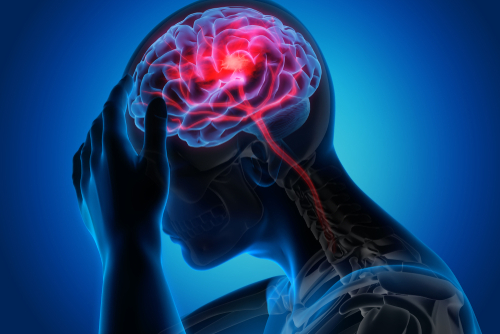
Suffering from a Headache? This Is What You Have to Know

There is probably no person in the world who has not suffered from some kind of a headache at least once in a lifetime. Some people even have headaches every day, without exception. Still, there are many types of headaches, and not all the headaches are to be ignored and simply suppressed. In some cases, we should see a doctor immediately since some of them are telling us that there is a serious problem with our health. The crucial thing for all of us is to be able to recognize different types of headaches. In this article, we have described some of the most common types in order to help you deal with them and act accordingly, depending on the possible causes, i.e. different types. Some headaches are simply signs that your lifestyle goes against your body’s requirements.
“If pain in the mind, then the most dangerous thing is it.” — Anuj Kr. Thakur
Let’s check – what is your headache like?
Migraine
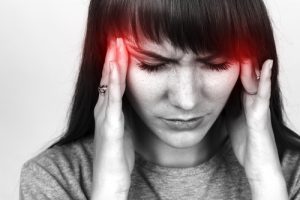
Mykola Samoilenko/Shutterstock
A migraine is considered to be a severe type of a headache. It generally progresses through four main stages. It is often associated with a violation of the metabolic processes and dilation of blood vessels in the brain. There is also a genetic predisposition for developing migraines.
Unfortunately, there are no real cures for migraines. Although there are many treatments to help ease the symptoms, the real solution does not exist. If you suffer from this type of a headache, you need to see your doctor to give you the right medication. Regular exercise can help you improve your health significantly and thus help you relieve this pain.
You have this type of headaches if:
- You’ve had such headaches at least five times in a short period
- If they lasted between 4 and 72 hours
- You’ve felt one-sided pain, throbbing pain, moderate-to-severe pain, and pain that interferes with your routine activities
- There were some of these symptoms accompanying your headache: nausea, vomiting, sensitivity to light and sound
Rebound headaches
These are caused by an overuse of painkillers for headaches. Yes, that is really possible. Pay attention to the painkillers you use, such as aspirin, acetaminophen, or ibuprofen, as well as prescription drugs. Do not overuse them since too much medication could cause the brain to shift into an excited state, triggering more headaches. Some scientists say that the rebound headaches appear as symptoms of withdrawal as the level of medicine drops in the bloodstream. In both cases, the cause is the same – addiction to painkillers.
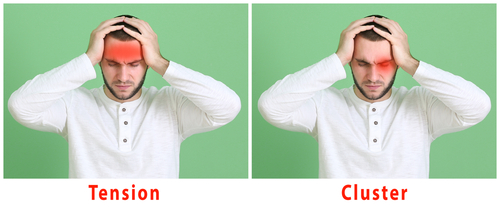
Africa Studio/Shutterstock
Cluster headaches
These headaches are rare – less than 1% of the population has them, mostly males. In this case, there is a stabbing pain behind or around your eyes. It is usually located only on one side of your head. It mostly appears during sleep and there. There are additional symptoms accompanied by this type of headaches, such as redness of the eyes, sensitivity to light, and lacrimation. The pain is severe, and it usually lasts from 15 minutes to an hour.
The real causes of this type of headaches remain to be known, but they are mostly linked to disruptions in the body’s biological clock.
Treatment is a bit tricky since the pain appears and disappears spontaneously and within minutes. If you happen to experience cluster headaches, you should immediately visit your doctor for possible treatment.
Hangover headaches

ShotPrime Studio/Shutterstock
These headaches are pretty clear-cut. If you consume alcohol, you get them, and if you don’t, you don’t. As simple as that! Even though it is a well-known fact that alcohol causes blood vessel dilation and affects serotonin levels in the body, it also enables water loss and dehydration. These two are basically the major headache triggers.
The best remedy here is prevention. You should stop drinking alcohol in the first place! If you don’t want to, then take a painkiller, drink plenty of water, and get some good sleep. Every hangover should be taken seriously. On the other hand, if you have a headache after consuming even a small amount of alcohol, it can be a mild form of a migraine rather than a hangover headache.
Tension headaches
A tension headache is the most common type of headaches. You have it if you are feeling a constant pain or pressure around the head, particularly in the temples or back of the head and neck. These pains are not as severe as migraines, and they don’t usually cause nausea or vomiting.
Common painkillers such as aspirin, ibuprofen, or acetaminophen, are good treatments. It is believed that this type of a headache comes as a result of the contraction of neck and scalp muscles (including in response to stress), and also from changes in brain chemicals.
Tension headaches appear due to the contraction of scalp muscles and neck generally (in response to stress), and also due to some changes in brain chemicals.
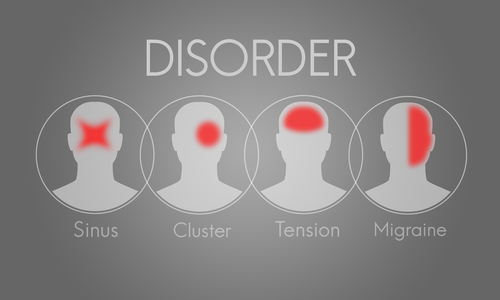
Rawpixel.com/Shutterstock
Sinus headaches
A sinus headache usually comes with a fever and is caused by a sinus infection. It can be diagnosed by symptoms or the presence of pus viewed through a fiber-optic scope.
Treatments for this type of headaches are antibiotics (prescribed by your doctor), antihistamines, or decongestants.
More in Luxury
-
`
Sam Bankman-Fried’s Secret Celebrity Network Exposed
In the glitzy world of cryptocurrencies, where fortunes can be made and lost instantly, having connections to the stars can make...
November 29, 2023 -
`
Are Rare Earth Elements Really So Rare?
When we hear the term “rare earth elements,” our minds often conjure up images of elusive and scarce materials. After all,...
November 20, 2023 -
`
Exploring America’s Top Tier Hotels
For those who crave the finer things in life, the United States offers a treasure trove of luxurious hotels that elevate...
November 19, 2023 -
`
Where Does Elon Musk Live? Let’s Find Out!
Elon Musk, the billionaire entrepreneur and visionary behind Tesla and SpaceX, is known for pushing the boundaries of technology and innovation....
November 10, 2023 -
`
The Origin of Elon Musk’s Feud With Bill Gates
In the world of tech titans and billionaire visionaries, it’s not uncommon for rivalries and feuds to develop. One of the...
November 1, 2023 -
`
Wall Street Downgrade VS. Upgrade: Which One Is Better for Your Money?
“Bad news sells.” It is an age-old adage we have all heard before. In the world of finance, the principle often...
October 28, 2023 -
`
Guitar Smashed By Nirvana’s Kurt Cobain Sells for Nearly $600k!
In the world of rock ‘n’ roll, legends are born from the music and the artifacts left behind. One such artifact,...
October 21, 2023 -
`
Dwayne “The Rock” Johnson’s Plastic Surgery Journey
Dwayne Johnson, globally celebrated as “The Rock,” is synonymous with wrestling and Hollywood stardom. With a physique chiseled from relentless workouts...
October 10, 2023 -
`
The Most Expensive Things Owned By Brad Pitt
Brad Pitt, one of Hollywood’s most iconic and influential actors, has amassed fame and fortune and an impressive collection of extravagant...
October 3, 2023


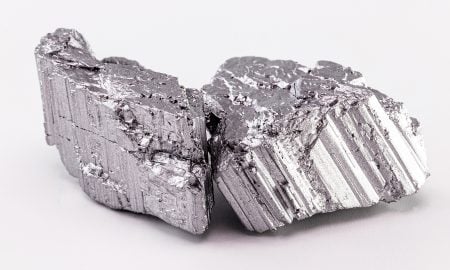












You must be logged in to post a comment Login